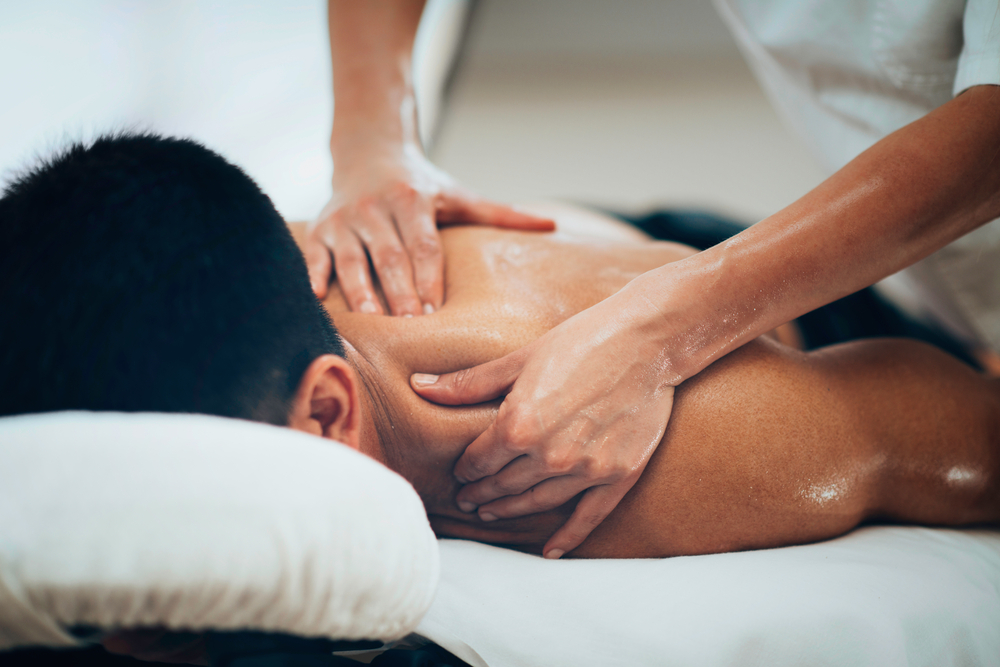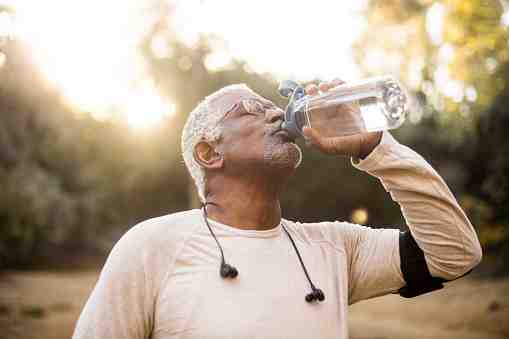Massage Therapy
Treatment for Auto Accident Injuries
Learn more about Massage Therapy treatment for car accident injuries.
Massage Therapy for Car Accident Injuries
Massage therapy for car accident injuries is the therapeutic application of light, medium and/or deep pressure on the skin to affect the soft tissue of the body.
Benefits Include:
- Deactivates and eliminates trigger points (hyper-painful "tender spots", which can refer and radiate pain to distant areas).
- Heats tissue and promotes muscle relaxation.
- Increases circulation of oxygen and nutrients to, and inflammatory and waste products from, the tissue.
- Reduces adhesions and scar tissue thus increasing joint range of motion.
- Relieves stress.

Drink lots and lots of water!
With just a little therapy time and a lot of water drinking, you can feel better faster!
Massage Therapy Frequently Asked Questions
Some people use massage therapy as a way to increase their relaxation and wellbeing, but it can also be used to combat varying physical issues after experiencing a car accident injury. Massage therapy can help increase circulation and flexibility, reduce compressed nerves and tight muscles, and supplement the healing of tendon, muscle, and ligament tears, as well as reduce scar tissue. Massage therapy can treat a variety of issues caused from car accidents, including: concussions, whiplash, stress and anxiety, and spinal cord and knee injuries.
To begin, you will be required to fill out a health history form, as well as outline what issues or areas of your body you would like worked on. These questions can include medications, past surgeries or ailments, as well as any allergies you may have. All of this information will help our massage therapists be as effective as possible in your treatment. After that, you can begin your appointment!
Although some consider massages to be light and relaxing, there are actually varying degrees of massages. The lighter the massage, the less discomfort felt. Some massages, which probe deeply into muscles and tissues may cause some pain or discomfort, but you should not experience pain that is “bad”. If the pain does not feel like it is combating an issue, but rather hurting you further, tell your massage therapist. “Good” pain can be an indication that the muscle being treated has been inflamed or injured, and your therapist can adjust their pressure, and massage in a manner that will assist in your healing.
After a massage, many people feel refreshed and energized, and some can experience an increased range of motion. However, it is not uncommon to also feel some muscle soreness post-massage. When having a massage, muscles that are being worked on can release lactic acid, which can create soreness. Thankfully, this soreness is only temporary.
The frequency of massage all depends on what is being treated. For stress management, a weekly or bi-weekly massage is helpful, as individuals can build up a lot of stress during a week. For pain reduction, during the first few weeks of treatment, it is recommended to receive a massage one to two times per week. After this, the amount of massages can decrease to two to three massage sessions per month.
Please contact us directly for more information.

MASSAGE THERAPY FOR ACCIDENT PAIN
Injuries to the soft tissue of the neck, such as whiplash, are extremely common following auto accidents. Massage is generally an effective method for such injuries. Massage increases circulation, which promotes healing. Massage also alleviates the pain of soft tissue injuries.

4 TYPES OF MASSAGE THERAPY
What are the 4 types of massage? Swedish Massage, Swedish massage is commonly used by the general population to reduce muscle tension. ... Deep Tissue Massage, Deep tissue employs the use of deeply applied pressure into the areas that are experiencing pain or dysfunction. ... Sports Massage Therapy. ... Trigger Point Massage.

HYDRATION AND HEALING

